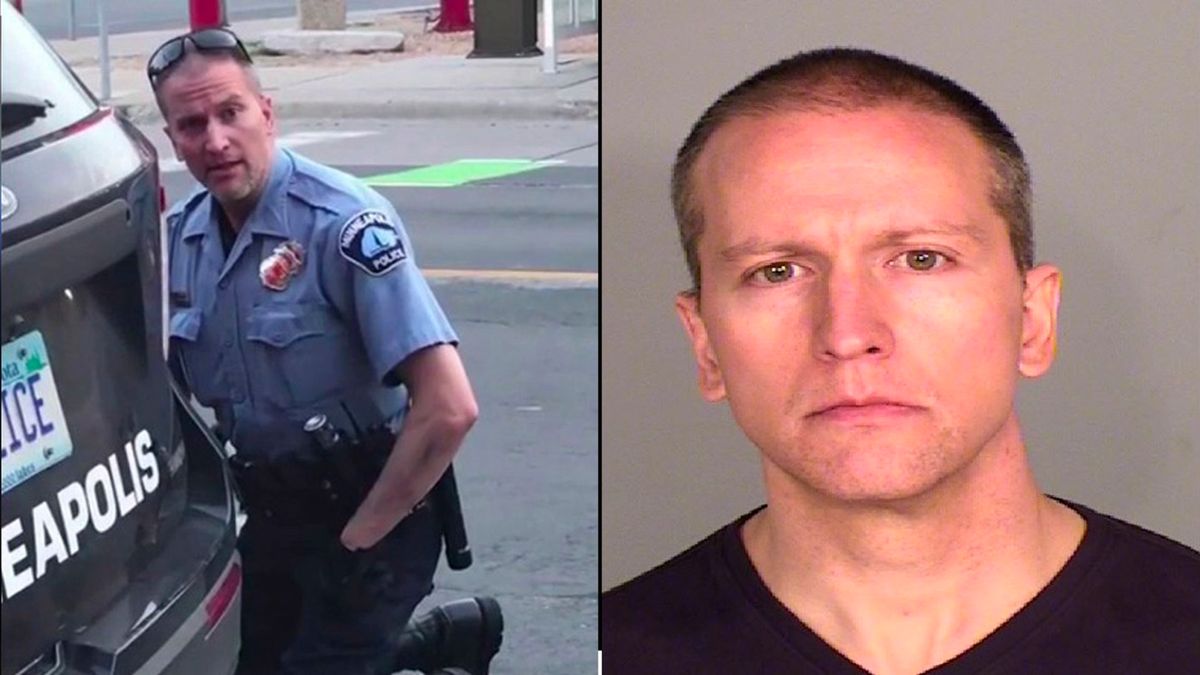What’s next for Derek Chauvin?

A few minutes every morning is all you need.
Stay up to date on the world's Headlines and Human Stories. It's fun, it's factual, it's fluff-free.
The policeman who killed George Floyd in Minneapolis, Derek Chauvin, was charged with murder after he was filmed kneeling on Floyd’s neck for over 8 minutes during a call to investigate the alleged use of counterfeit money at a local convenience store.
Floyd’s death has sparked waves of protests throughout the United States over police misconduct, especially in situations involving African Americans. As of June 6, at least 700 towns and cities across the US have held demonstrations protesting Floyd’s death and the treatment of minorities in the country.
Chauvin, an 18-year veteran of the Minneapolis police force, had 18 prior complaints filed against him with the department’s Internal Affairs division over the years. Although the specifics of those complaints have not been released, only two were reportedly closed with disciplinary action.
The three other officers at the scene who failed to intervene were also charged with “aiding and abetting” Floyd’s murder. Chauvin is now being held at a detention facility to await the next steps in the legal process.
Official Charges
Chauvin was originally charged with third-degree murder for the killing, which states that the death occured “without intent” but was caused by “perpetrating an act eminently dangerous to others … without regard for human life.”
Minnesota Attorney General Keith Ellison later upgraded the murder charge to unintentional second-degree murder while committing a felony, which is defined as causing “the death of a human being, without intent to effect the death of any person, while committing or attempting to commit a felony offense … with force or violence.”
According to Ellison, in this case the felony would be assault. Chauvin is also being charged with second-degree manslaughter, which occurs when someone “creates an unreasonable risk, and consciously takes chances of causing death or great bodily harm to another.”
Each of these charges comes with different penalties. The most severe charge, second-degree murder, comes with a maximum sentence of 40 years in prison, third-degree murder comes with no more than 25 years or a US$40,000 fine or both, while second-degree manslaughter comes with up to 10 years in prison, a fine of US$20,000, or both.
Next steps
Chauvin’s first court date is scheduled for June 8 where he is set to be arraigned for his alleged crimes, meaning a judge will formally announce the charges against him. At this point, Chauvin will be given the chance to plead guilty, not guilty or no contest, which would open him up to conviction without formally announcing his guilt.
It is widely expected that Chauvin will plead not guilty to the charges. After that, he will be scheduled for a “Rule 8 Hearing” within 14 days of the arraignment, which will confirm the charges and conditions for bail, which is currently set at US$1 million.
At that point, within 28 days of the Rule 8 Hearing, there will be another hearing known as an “Omnibus Hearing” that will determine whether there is enough evidence for the case to be taken to trial.
While the criminal case against Chauvin is likely to go to trial, it could be a while before it gets underway.
Speaking with The Millennial Source, Kris Parker of Hendry & Parker P.A., a law office in Florida, argued that it could be well into next year before the case goes before a jury.
“Due to its high interest, the large number of potential witnesses, and potential evidentiary matters on both sides, a jury trial in this case will not likely get underway before spring or summer of 2021,” he said.
Open and shut case?
According to Tonya Krause-Phelan, a professor at WMU-Cooley Law School in Michigan, the case against Chauvin should play out in a straightforward manner.
“Regarding the particular type of second-degree murder charge filed against Chauvin, the AG [Attorney General] only needs to prove that Chauvin caused Mr. Floyd’s death while committing another felony, here, third-degree assault,” she told The Millennial Source.
“While the AG will have to prove Chauvin caused Mr. Floyd’s death while committing third-degree assault, this should not be difficult considering all that must be proved regarding the assault is that Chauvin intentionally inflicted bodily harm on Mr. Floyd,” she added.
Others are more wary that the case will end with a strong guilty verdict. Cory H. Morris, a civil rights lawyer based in New York, argued that the history of convictions in criminal cases involving officers in situations that resulted in the death of minorities is weak.
“The charging of police for the death of an unarmed black man is almost a unicorn event,” Morris told The Millennial Source.
“It rarely happens. Laquan McDonald was the first prosecution of a police officer for such a charge in nearly four decades while the geographic area is home to more gunshot related killings than any other place in America,” he added, referring to a 2014 case where a Chicago police officer was convicted of killing 17-year old McDonald and sentenced to nearly seven years in prison.
According to analysis from The Washington Post, of the thousands of cases of fatal shootings by police from 2005 to 2015, only 54 saw formal charges being brought against officers. Of the officers charged, only a handful were eventually convicted of wrongdoing.
Have a tip or story? Get in touch with our reporters at tips@themilsource.com




Comments ()